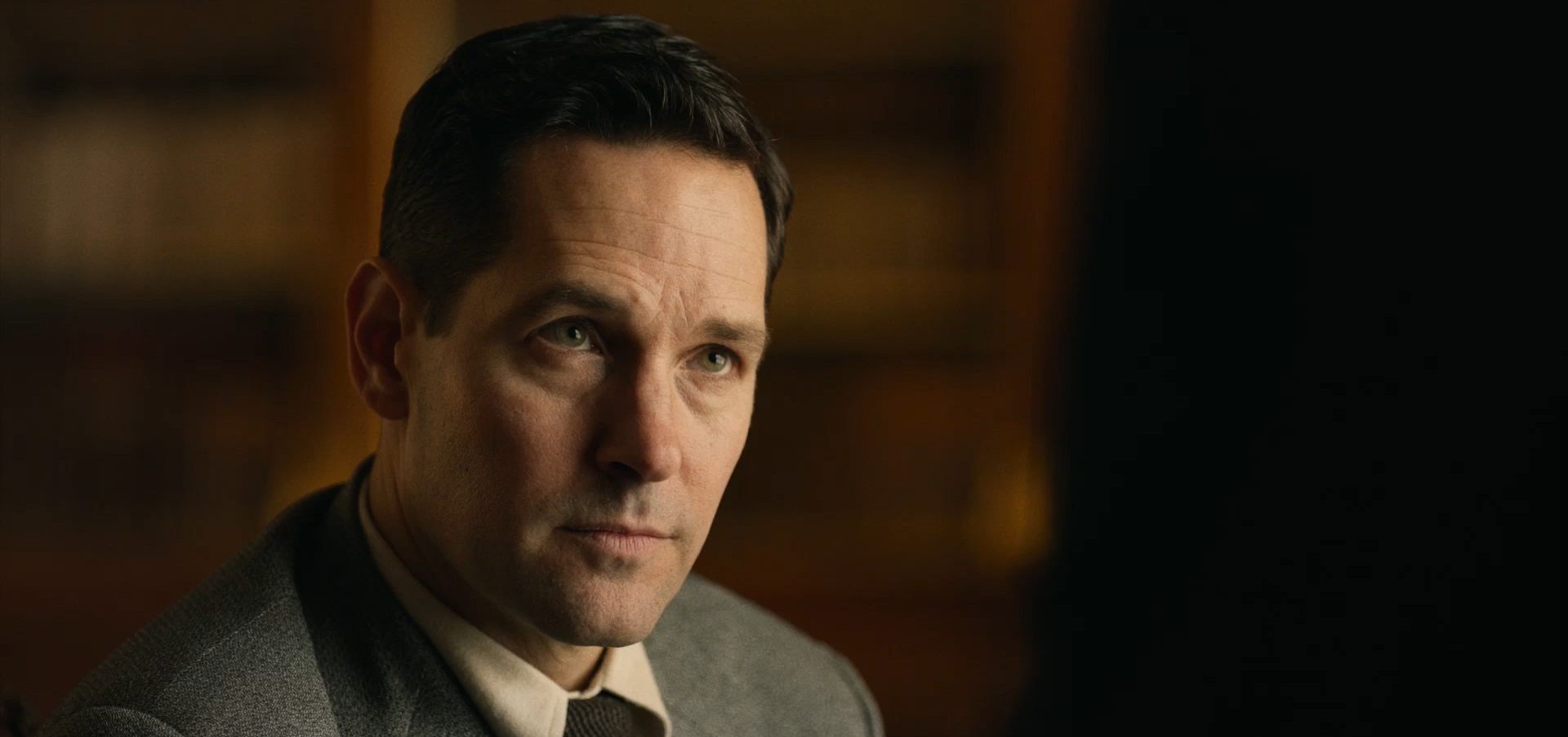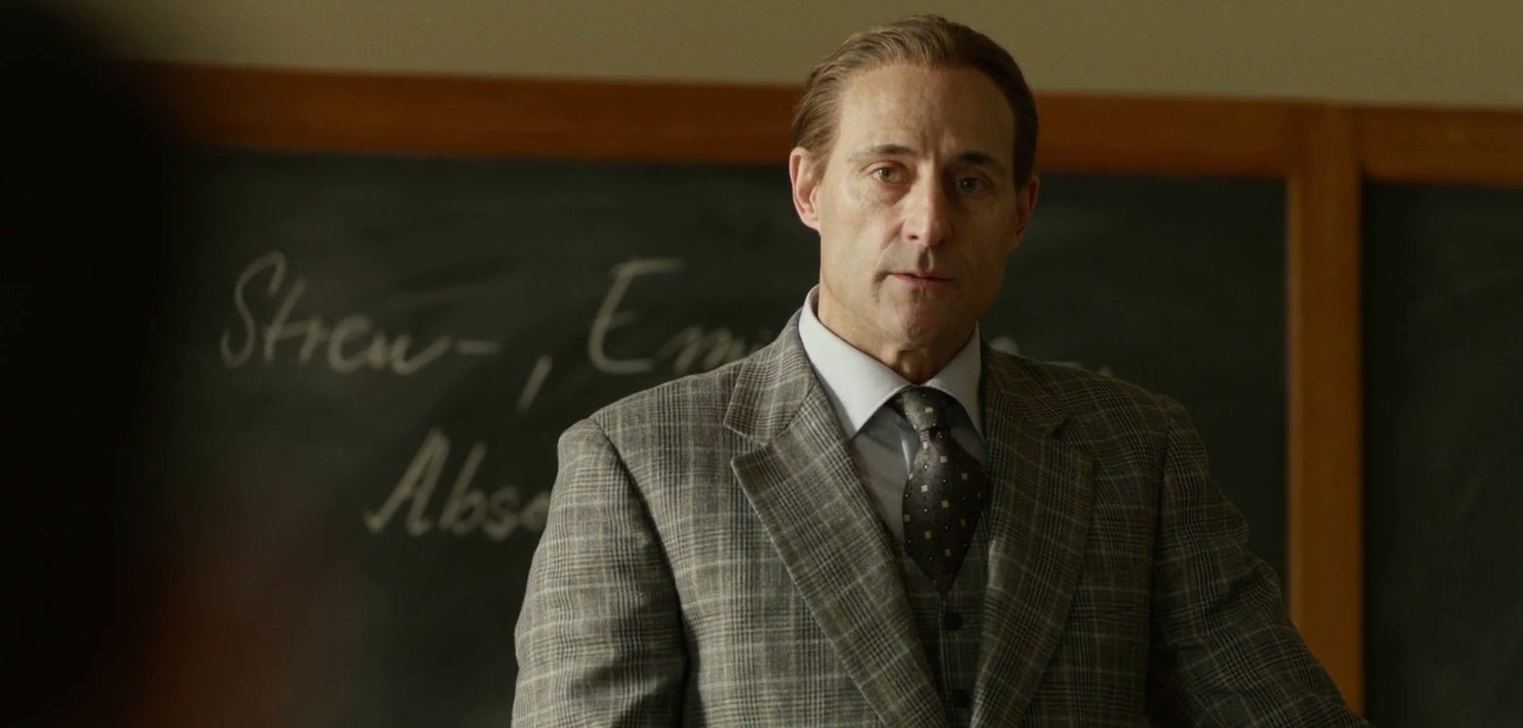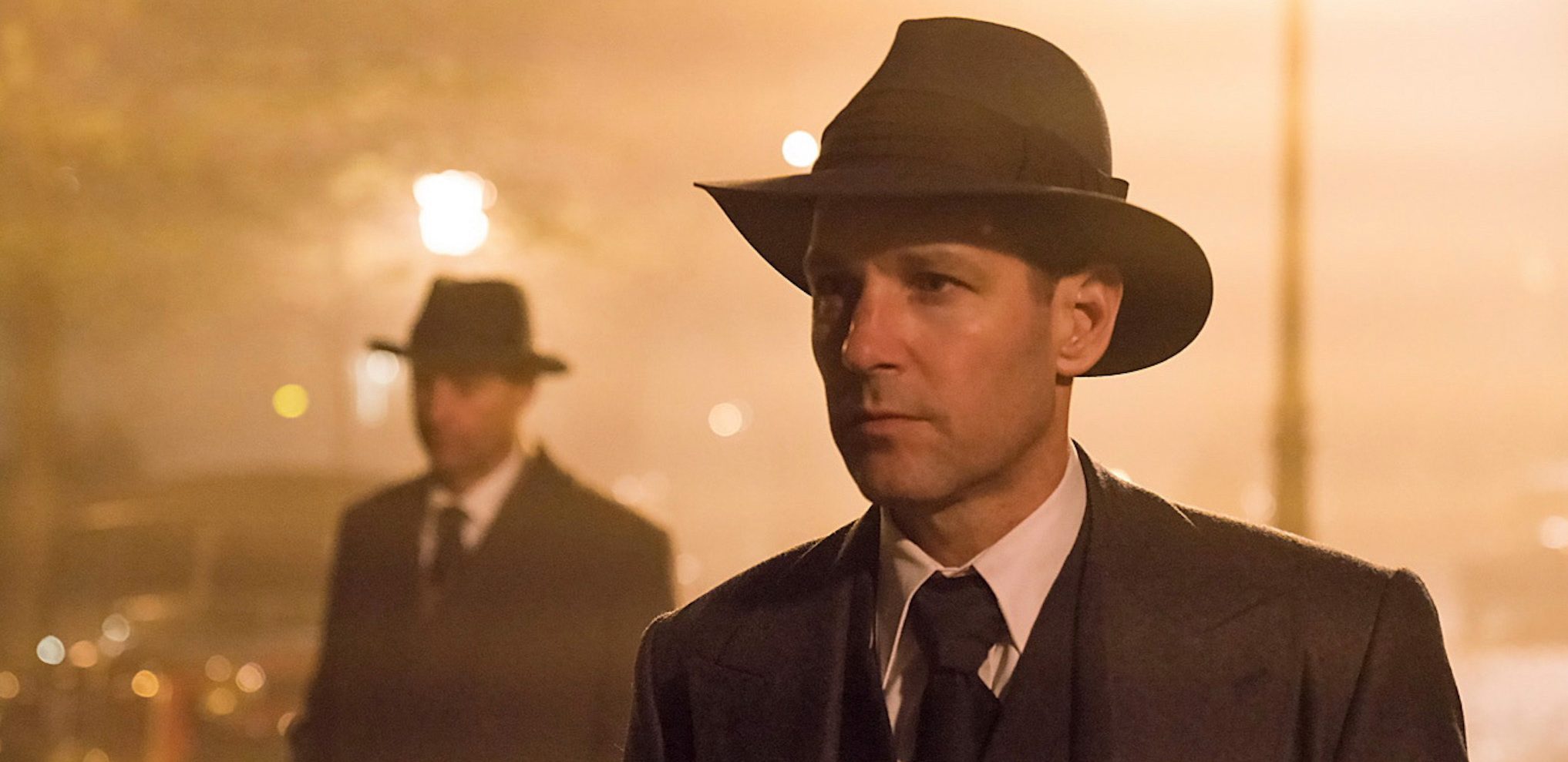In Ben Lewin’s biographical war film ‘The Catcher Was a Spy,’ baseball catcher Morris “Moe” Berg becomes a spy for the Office of Strategic Services and gets assigned to kill Werner Heisenberg, the mastermind behind Germany’s efforts to build an atomic bomb during World War II. Moe arrives in Zürich, Switzerland, in December 1944 to murder Heisenberg and ensure that the Nazis will not succeed in building a nuclear weapon that can threaten the United States.
Moe then gets acquainted with Paul Scherrer, Heisenberg’s friend and fellow physicist, who invites the baseball player to dinner also attended by the German scientist. Despite getting ample opportunities to put bullets in Heisenberg, Moe walks away at the end of the film, bidding farewell to the former without hurting him! SPOILERS AHEAD.
The Non-Existent Threat
Moe Berg doesn’t kill Werner Heisenberg because he gets convinced that the latter hasn’t been making an atomic bomb. The former baseball catcher also realizes that Germany is on the verge of defeat as far as World War II is concerned, which wouldn’t be the case if Heisenberg had almost made a nuclear weapon to destroy the United States. After talking to the German physicist privately, Moe perceives that the man opposite him is not a threat to his country in any matter, which makes him walk away from the scientist without killing him. Moe’s decision is justified since he arrives in Zürich after making it clear to his colleagues and superiors that he will only kill Heisenberg if he gets convinced that the physicist is a threat.

In reality, the conclusion of Moe’s mission to kill Heisenberg wasn’t drastically different. “He [Moe] sensed when a runner was going to steal, and even though Heisenberg was trying to hide it, Berg knew he was despondent because Germany didn’t have the bomb and was going to lose the war,” Robert Rodat, who penned the film, told The New York Times. “That was the tell. Berg never understood himself, but he understood other people,” the screenwriter added.
The pivotal point in Moe’s mission was a lecture Heisenberg gave to a room full of foreigners in Zürich, as the movie depicts. He was supposed to shoot the physicist down if the latter confirmed the potential completion of an atomic bomb but such a confirmation never came from the latter. “Berg’s assignment had been to look Heisenberg over. He was to fire only if he heard indisputable evidence that a German bomb was nearing completion. Berg wasn’t exactly sure what he had heard, but it didn’t seem terribly threatening, and nobody else seemed to find anything amiss either,” reads Nicholas Dawidoff’s ‘The Catcher Was a Spy: The Mysterious Life of Moe Berg.’
The Non-Existent Bomb
For decades, historians and scientists have been debating whether Heisenberg was really trying to build an atomic bomb. According to Dawidoff, such a bomb never materialized. “He [Moe] had just heard Heisenberg say that the war was lost for Germany. Were Heisenberg poised to unfurl an atomic bomb, he would probably have spoken differently or not at all,” he wrote in ‘The Catcher Was a Spy.’ “If Heisenberg was supervising a bomb project, it seems unlikely that Hitler would have permitted him a long public visit to Switzerland. Besides, only a large dose of OSS wishful thinking finds Heisenberg, with his bomb nearly built, telling a lecture hall full of foreigners about it,” the book further reads.

Heisenberg himself was not really motivated to build an atomic bomb for the German government, according to various reports. “The point is that the whole structure of the relationship between the scientist and the state in Germany was such that although we were not 100 percent anxious to do it, on the other hand, we were so little trusted by the state that even if we had wanted to do it, it would not have been easy to get it through,” the scientist told his colleagues, as per Thomas Powers’ ‘Heisenberg’s War: The Secret History of The German Bomb.’
“I never thought that we would make a bomb, and at the bottom of my heart I was really glad,” Heisenberg added. His colleagues shared little enthusiasm as well, especially Carl Friedrich von Weizsäcker. “I believe the reason we didn’t do it was because all the physicists didn’t want to do it, on principle. If we had all wanted Germany to win the war we would have succeeded,” Weizsäcker said about building an atomic bomb for Germany, as per Powers’ book.
According to Philip Morrison, who was a part of the Manhattan Project under the leadership of J. Robert Oppenheimer, it didn’t make a whole lot of sense to kill Heisenberg in 1944, two years after Victor Weisskopf and Hans Bethe suggested kidnapping him. “I have no doubt that those were [Berg’s] orders and that he would have done it, but it would have made no difference,” said Morrison, as per Dawidoff’s book. “With our project, you could shoot Fermi in 1944 and it would have made no difference. A year before the [American] bomb, 100,000 people were working on it. By 1944, Heisenberg was no longer very valuable,” he added.
Read More: Best Historical Movies on Netflix


You must be logged in to post a comment.